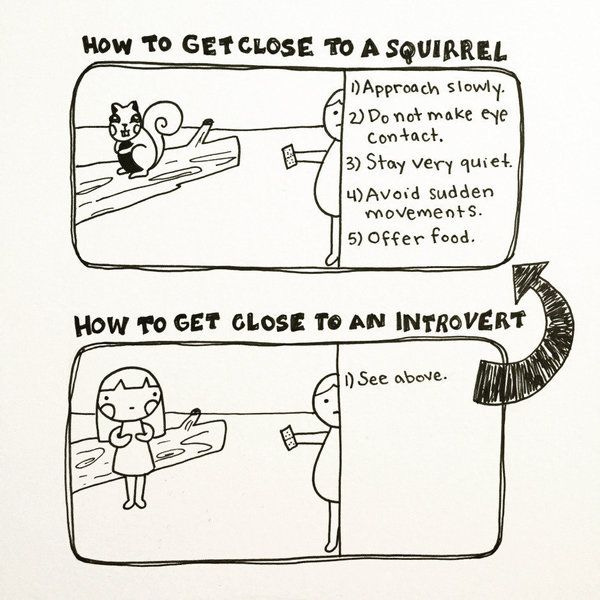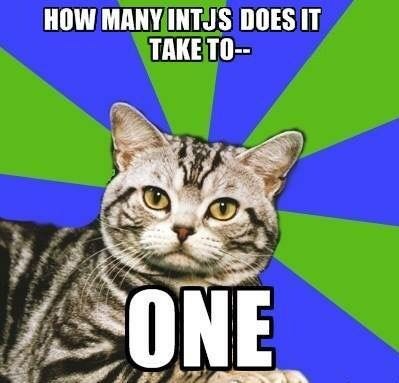A few of moons ago, out of the strange misty ether where blogs go to die, I received an email notification from Wordpress.
Someone liked a post I wrote nine years ago. It was on my Myers-Briggs personality type, the INTJ, as a part of a challenge for writers to share information about their own designation so that we might have cause for inspiration on a character, or some extra tidbits to steal from.
I took this as a sign to reintroduce this post to the internet, born again at a later time where I am less cringe (strong emphasis on the word less) and have an actual readership (sort of). Past Kerry’s meme game was on point though, I’ll give her that.
Personally, I like to use my numerology practice to help write my characters. I used the Life Path numbers to develop the 9 character states in Metanoia. Although it feels like cheating sometimes, I highly recommend studying some sort of psychological framework such as MBTI (Myers-Briggs Type Indicator), astrology, etc., if you write fiction and churn out stories consistently. I know each Life Path number intimately. Every time I write about a Life Path, there is a queue of people that emerges, all of whom I know intimately. It’s not just their quirks that I know, but what drives them and the kinds of lives they’ve had. This has been an invaluable resource for me and I can’t help but wonder what something like this would do for other writers as well.
Feel free to use this post for a character you have in mind, whether you are starting from scratch or need to supplement an existing one.
I’ll preface this with saying that the MBTI is not something I’m an expert at. Like most, I simply took the test and researched enough to understand my result, which I was pleasantly surprised with. The MBTI was created to help people understand what professions would be best for them based on their personality. It has, like with most studies regarding personality quizzes and self analysis, branched out into many other levels and communities. I think this is completely understandable based on its success in revealing key details about oneself in a way that so many find profoundly useful.
First thing worth mentioning is the frequency of the MBTI types in the population. The INFJ is the least common, but it seems that just about everywhere I turn online there’s an INFJ. It’s practically the only one I see in bios, the only one that approaches me by introducing themselves as their type. Perhaps that’s just because they finally found something that describes them accurately, but regardless, I’m going to go ahead and say that if they’re the least common type, they’re also the most common to take the quiz and then subsequently tell everyone about it (all jokes aside I will shit my pants if an ESTP makes themselves known in the comments here or someone of the like. Where are you???).
The INTJ is also a less common type but still one that I come across fairly often, EXCEPT when it comes to women. For some reason, only 1% (and in some places I’ve read, only .08%) of the female population is estimated to have this type, and so I am here to introduce you to this creature.
Let’s begin with breaking down the letters:
I: Introversion
Gets energy from the inner world of reflections and thoughts. Focuses energy and attention inwards in reflection.
N: iNtuition
Prefers information coming from associations. Focuses on possibilities and what might be.
T: Thinking
Steps out of situations to analyze them dispassionately. Prefers to make decisions on the basis of objective logic.
J: Judging
Prefers to live life in a planned and organized manner. Enjoys coming to closure and making a decision.
The INTJ is a strategist. They are able to see all variables from far away, and how they play out later on. It’s why they’re sometimes associated with historical visionaries, and reflective characters. Because logic, independence, and being able to see the forest for the trees are characteristics they’re associated with, the INTJ is often typecast as villains or callous people. This has more to do with humans having the tendency to place what they don’t understand and what they don’t agree with in the same place in their mind, and less to do with their character. Some examples of fictional INTJ characters include Dr. Gregory House, Wednesday Adams, Maleficent, Hannibal Lecter (lol fear me), Walter White, and Jean-Luc Picard (my favorite). People who see the bigger picture are often mistaken as impersonal. Just today I went off on someone (an understanding friend thankfully who was on the same page) about the stupidity of balloons. To the person just trying to vibe and have a good time, I am the villain. To the sea turtle I saved and the people I’ve helped with the reduction of microplastics, I’m the hero. It’s all relative, and quite honestly, the world could use more INTJ’s.
I present to you, the female INTJ. Self-governing, profoundly loyal, utterly transparent, and yes, that can be inflammatory to a lot of personalities, especially those in power, those calling the shots in the entertainment industry, those in the highest positions of finance and government. Even more so when these characteristics present themselves in a woman living in patriarchy and misogyny. Not to toot my own horn, but this is an interesting personality to write about.
My favorite depiction of the female INTJ is Katniss Everdeen from the Hunger Games. She has moments of ruthlessness because she has to be. Although she is fiercely independent, she still only ever acts on the welfare of her community and the people who are close to her. There are very few people capable of doing the right thing no matter how painful it is. This is one of them.
Here are some angles of the INTJ filtered through the lens of life circumstances that could be useful in character development:
Depth: Small talk is sandpaper to their psyche. The INTJ starts out every day with a threshold for standard social interactions. I can only talk about the weather so much before wanting to jump out the window. I’m under the impression that when it’s time to converse, most INTJ’s would much rather discuss larger ideas, or go in depth with how someone feels that day, their life, their hobbies, what kept them awake last night, etc. If they are surrounded by drama, they will disassociate. If the drama is coming from a specific person, that connection will be severed. If someone is untrustworthy or is not aligned with their morals, there’s a high likelihood that the bridge will be burned.
Independence: What can I say? We are solitary creatures. I don’t do well in group activities. Every cell in my body protests following large groups of people. I know the psychology of the human race and I know they don’t know where they’re going or what they’re doing. The INTJ doesn’t alter their beliefs or behaviors to gain approval or to be liked by others. They will not only get by on their own, but thrive.
Loyalty: This is the trait I don’t see discussed enough. It’s well known that the INTJ is very selective and has a small circle because of it. When you’re not spread so thin amongst a large group of people, there is more of yourself to give to that supportive network. For the most part, their judgement of character is unerring, and if you are lucky enough to be in their life, that speaks volumes about the kind of person you are. Because the people who are close to me have gone through a kind of refinement over time, I feel incredibly lucky to know them and would do anything in my power for them. Personally, I find it hard to have relationships because I can see exactly where they lead and how they end from the beginning.
The Chameleon: This is just my take as a woman with this personality. It has been my experience that resolve is often confused with other things, like being a mean, unapproachable person, when women are supposed to appear as warm and generous… aka thoughtless/without opinion/malleable. People want the comfortable lie more than they want the truth. They just want to have a good time, even while the water gets warmer and the bodies float to the surface. They want their ego fed. They have a story they tell themselves and they want validation in that. I could go on. I have learned to go the extra mile in showing my warmth, and I have learned to keep quiet, and to look like what someone wants above my own needs. I have learned to mask for the sake of a job, high scores, and certain social circles. Perhaps the female INTJ is more common, and many were just born in an environment where they weren’t allowed to be who they are.
I wasn’t sure how this installment of my ‘On Writing’ section would be received. It has been a while since I’ve uploaded a post here and I’m sorry that I’ve neglected it. I would love to know what your MBTI type is and the notable traits you would use for a character for everyone to consider.









Wonderful post! Speaking as - yes, yet another INTJ female - I like your bit about how there are a lot of them about on social media bios. I find that amusing.
I also think you may have hit on something towards the end there about how a woman like this would fare in a patriarchal misogynist society. It's not necessarily that they would become a different personality type, only that they might project a different type. To others, I mean. To themselves they would be honest. But they would also be angry at themselves for not being themselves more. Unless I'm just talking about myself there. But it is so very true what you said about the Establishment hating and fearing INTJs so much - thus they do everything they can to suppress them, especially women. And perhaps this encapsulates the entire strategy of social control they have been forcing on the world for the last 2k years or so. Certainly makes sense to me.
When it comes to characters in stories, though, I have come to realise my main characters embody the bits of me that I sometimes wish I had, which are a different personality type, especially the extrovert type - or perhaps I'm simply confusing 'extrovert' with 'confident'. INTJs deep down would be extremely self-confident, just that they do understand how they are viewed in this particular society.
I had never thought about using those personality types when thinking about writing characters, though. Now I think I should.
I have an excellent Tarot book about applying MBTI, and using various different, quite creative in places, tarot spreads to explore yourself. I may have to dig it out again.
Thanks for this post. I’m INFP but I used to have a best friend who was I INTJ. Unfortunately a series of events led to that friendship ending; I reached out a few times to apologize for some things I did but she was prickly like a porcupine so I gave up.
This post does describe her as I remember her. I wish I could mend bridges but I understand boundaries.
I’ve never written an INTJ woman; now I feel like I want to take on the challenge!